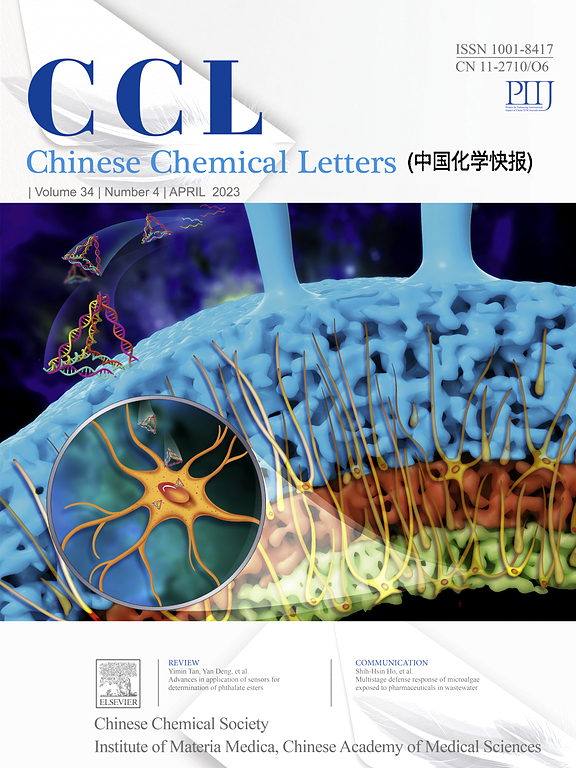Elaborate construction of pH-sensitive polymyxin B loaded nanoparticles for safe and effective treatment of carbapenem-resistant Klebsiella pneumoniae
IF 9.4
1区 化学
Q1 CHEMISTRY, MULTIDISCIPLINARY
引用次数: 0
Abstract
The escalation in the incidence of multidrug-resistant Gram-negative bacteria is becoming a pressing global concern. Polymyxin B (PMB), a conventional antibiotic with notable therapeutic efficacy against Gram-negative bacterial infections, serves as a crucial final recourse against carbapenem-resistant Klebsiella pneumoniae (CRKP) infections. Nevertheless, the clinical usage of PMB is impeded by its pronounced nephrotoxicity and poor infection site targeting. This investigation is geared to construct a nanoparticle formulation (named HA-PMB@H) comprising hyaluronic acid (HA) and PMB via a simple Schiff base reaction and further coating HA by electrostatic action. HA-PMB@H shows an average size of (153.8 ± 24.3) nm, and a mean zeta potential of (−25.6 ± 5.2) mV. Additionally, PMB can be released from HA-PMB@H more thoroughly and efficiently at pH 5.5 compared to pH 7.4, which demonstrates the Schiff base modification of PMB paves the way for its release at focus of infection. The uptake ratio of HA-PMB@H by alveolar epithelial cells (RLE-6TN) surpassed that of free PMB devoid of HA, which facilitates to the intracellular sterilization of PMB. Furthermore, the employment of HA-PMB@H ameliorated the toxicity of PMB towards human embryonic kidney cells (HEK 293) and pulmonary microvascular endothelial cells (HULEC-5a). What is more, HA-PMB@H effectively managed severe pneumonia induced by CRKP samples from clinical patients diagnosed with CRKP infection in vivo, substantially enhancing the survival rate of mice. Consequently, this nano-delivery system holds promising clinical significance in the combat against drug-resistant bacterial infections.

求助全文
约1分钟内获得全文
求助全文
来源期刊

Chinese Chemical Letters
化学-化学综合
CiteScore
14.10
自引率
15.40%
发文量
8969
审稿时长
1.6 months
期刊介绍:
Chinese Chemical Letters (CCL) (ISSN 1001-8417) was founded in July 1990. The journal publishes preliminary accounts in the whole field of chemistry, including inorganic chemistry, organic chemistry, analytical chemistry, physical chemistry, polymer chemistry, applied chemistry, etc.Chinese Chemical Letters does not accept articles previously published or scheduled to be published. To verify originality, your article may be checked by the originality detection service CrossCheck.
 求助内容:
求助内容: 应助结果提醒方式:
应助结果提醒方式:


